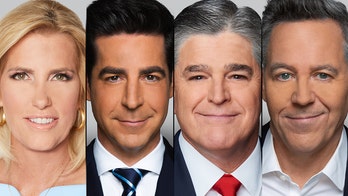CBS aired two different answers to the same question in its "60 Minutes" interview with Vice President Kamala Harris, prompting accusations of selective editing.
CBS's decision to air two different answers to the same question in its "60 Minutes" interview with Vice President Kamala Harris has raised questions about the network's motives and the authenticity of the interview.
On October 6th, CBS aired a portion of Harris's answer to a question about Israel from "60 Minutes" correspondent Bill Whitaker on its "Face the Nation" program. In this clip, Harris gave a lengthy and disjointed response that was mocked by conservatives.

CBS's Selective Editing Raises Questions About Kamala Harris's '60 Minutes' Interview
However, when the full "60 Minutes" interview aired in primetime on October 7th, a different and shorter answer to the same question was shown. This answer was more focused and did not contain the rambling that characterized her response on "Face the Nation."
This discrepancy has led to accusations that CBS deliberately edited Harris's interview to make her appear more articulate and competent. The Trump campaign called for CBS to release the full unedited interview, claiming that the edited version was deceptive.

CBS's Selective Editing Raises Questions About Kamala Harris's '60 Minutes' Interview
CBS has defended its editing, claiming that it was necessary to save time. However, the fact that the network aired two different answers to the same question calls into question the authenticity of the interview.
It is unclear why CBS would choose to edit Harris's interview in this way. One possibility is that the network was trying to protect Harris from further ridicule. Another possibility is that CBS was trying to create a more favorable impression of the Vice President.

CBS's Selective Editing Raises Questions About Kamala Harris's '60 Minutes' Interview
Whatever the motive, the selective editing of Harris's interview has damaged CBS's credibility. It raises questions about the network's commitment to objectivity and its willingness to manipulate the news to suit its own agenda.
In addition to the controversy over the editing, Harris's answers to Whitaker's questions have also been criticized. Her response on "Face the Nation" was widely mocked for its lack of clarity and coherence. Her response on "60 Minutes" was more focused, but it still failed to provide a clear and concise answer to Whitaker's question.
Harris's poor performance in the "60 Minutes" interview has further damaged her reputation and raised doubts about her ability to serve as President. The controversy over the editing of the interview has only served to deepen those doubts.
The "60 Minutes" interview is the latest example of the media bias that has plagued the Biden administration. From the beginning, the media has been reluctant to criticize Biden and has often given him a pass on issues that would have been heavily scrutinized under a Republican president.
The selective editing of Harris's interview is a clear example of this bias. CBS's decision to air two different answers to the same question raises serious questions about the network's objectivity and its willingness to manipulate the news to suit its own agenda.
The media's bias is a threat to our democracy. It undermines the public's trust in the media and makes it difficult for citizens to make informed decisions about the issues facing our country.
We need a media that is objective, fair, and transparent. We need a media that is willing to hold those in power accountable and to report the news without bias.
Only then can we have a truly informed citizenry and a healthy democracy.










